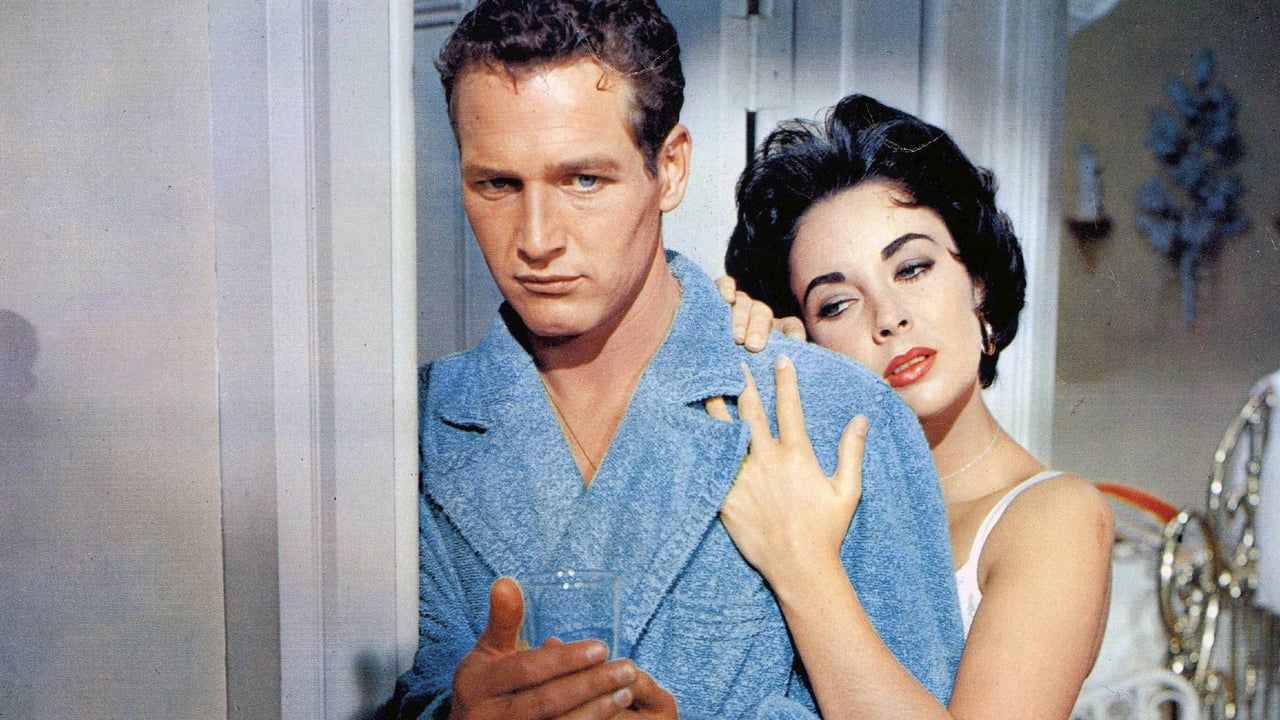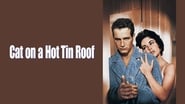christopher-underwood
Very fine adaptation of the Tennessee Williams play that is both literate and entertaining. Being pretty faithful to the original this takes place only within a couple of room plus a small amount of exterior shooting but still hold the attention so well because of the wonderful dialogue and the performances. Burl Ives is as good as I have ever seen him and Paul Newman is great but it is Elizabeth Taylor that shines so brightly throughout. A little too brightly at times as to put some of the cast in the shade - a bit like Marilyn Monroe did on occasion. I purchased this on Blu-ray along with Who's Afraid of Virginia Woolf and it occurs to me watching the Tennessee Williams that Edward Albee must have been influenced in the writing of his play after seeing this. The full horrors of the family history are gradually revealed with key moments prompting more revelations as we proceed, there is much emphasis on the leading lady having or not having a child and then there is the drinking. Both great pieces of writing from which two great films were made and so impressed was I with this that I wonder if 'Who's Afraid' will remain my favourite.
HotToastyRag
Cat on a Hot Tin Roof is a story that people like to remake, but I don't really know why. In my opinion, it's not Tennessee Williams' masterpiece, and the supporting characters can get on the audience's nerves pretty quickly. The only reason I can imagine why everyone wants to take a crack at it is because the original is so beloved, other actors say to themselves, "I want to be Elizabeth Taylor!" or "I want to be Paul Newman!" If you've never seen a Tennessee Williams story, here's the skinny: It's set in the South, a key plot point is a sexual problem, there's an "old world" family drama, a hint of male homosexuality, and it's usually all during a very hot summer. Also, the movies are based off of plays, so there will be lots of monologues. I'm not dissing Tennessee Williams; I actually love many of his plays. I just wanted to let you know what to expect.In Cat on a Hot Tin Roof, a childless married couple is on the brink of divorce. They bicker and argue, all through the wife's family's visit. If you've heard of the characters Maggie the Cat or Big Daddy, they originate from this story. Obviously, with two beautiful people in the lead roles, this movie is enjoyable to watch, and the tension between them sparks off the screen. It might not end up being your favorite old movie, but it's worth a viewing.
maxastree
A classic film in terms of star power, and the flawless craft that went into it, but nowhere near as shocking, poetic or memorable as the earlier B&W Tennessee Williams adaptation A Streetcar Named Desire.Essentially, this film is a glitzy, upmarket rewriting of that films central themes and tropes, except focusing on a genteel family of well-to-do Americans; their family headed by a plutocrat of sorts, diagnosed with cancer, with his family of dysfunctional, permanently arguing offspring and in-laws bitching at each other over who will get his house, land and business interests after death.The film does achieve a kind of black comic tone during numerous scenes where Big Daddy essentially thinks his health is fine, but doesn't know the real diagnosis, and of course Elizabeth Taylor looks stunning, always lit and dressed perfectly, and occasionally shot with a soft focus lens that would look out of place nowadays, but isn't as disjunctive as the overcooked soft focus you'd see on, say, an early Star Trek episode.This movie is OVERRATED. I don't mean that in a bad way, the writing is great, the characterization and catharsis among the troubled offspring verges on a type of pop-psychoanalysis. The movies main problem is that is makes very heavy going of 'taboo' subjects like sex, alcoholism and repressed familial hatreds, that supposedly decent people "just didn't talk about" in the 1950s. The actors often seem to be shouting their emotions at the audience, not at each other, and the sheer volume of endless arguing and accusations among the hateful, greedy family members feels like an endless fever pitch where the director wants a big emotional forte every five minutes, practically like clockwork.As I mentioned above, the films essentially a recasting of Streetcar, but in a different setting, and numerous commentaries suggesting that Williams own dysfunctional, miserable family are projected in his writing work are quite obvious. Ultimately, Cat on a Hot Tin Roof is a good movie, but only if you haven't seen the earlier (and better) movie A Streetcar Named Desire. Lastly, the tone and personal drama approach of the film seems to have hit a commercial formula for popular drama that gets re-written and replayed practically every year, showered with awards no doubt, as pretend family members shout, emote and deliver extensive monologues baring witness to their inner lives, in a very, very direct and obvious manner. Good entertainment, but a bit middlebrow, too.
writers_reign
This is a play from what we might call the First period of Tennessee Williams' prolific career, the time - roughly a decade from the mid- forties to mid-fifties - when he turned out a fine body of work from The Glass Menagerie through A Streetcar Named Desire, The Rose Tattoo, Summer and Smoke and including, towards the end of this period, Cat On A Hot Tin Roof. Whilst it has definitely been sanitized and diluted by Hollywood an even greater sin is the fact that not one single frame tells us we are in the Deep South and for all the authenticity on display we could just as well be in Bangor, Maine, or Kokomo, Indiana. Writer-director Richard Brooks must be a graduate student of irony: before he began directing films Brooks wrote a couple of fine novels, one of which, The Brick Foxhole, was adapted for the screen and, with a new title, Crossfire, was directed powerfully in 1948 by Edward Dymytryk. Brooks wrote a novel about how hate can lead to murder, a homosexual is killed just for being a member of a minority group. In 1948 Hollywood no one was about to put a gay man on screen so the victim became Jewish, another minority group. Ten years later Brooks was STILL not allowed to touch on the possible homosexuality of one of the three leading characters, Brick Pollitt, played by Paul Newman, meaning other reasons had to be fashioned for his alcoholism and aversion to having sex with his wife, Maggie the Cat, played by Elizabeth Taylor. The third lead was Big Daddy Pollitt, played by Burl Ives, whose terminal cancer was a handing metaphor for the 'decaying Magnolia' school of writing to which it belongs. Williams scholars will always want to see it but it is mediocre at best



 AD
AD






